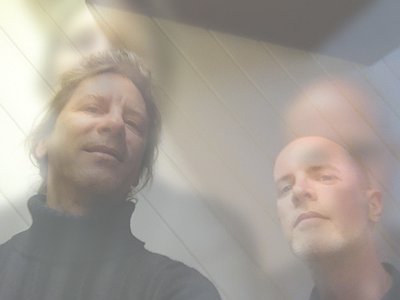The relationship between music and other forms of art – painting, video art and cinema most importantly - has become increasingly important. How do you see this relationship yourself and in how far, do you feel, does music relate to other senses than hearing alone?
Music or sound can be very physical, but it all comes back to your ears.
There seem to be two fundamental tendencies in music today: On the one hand, a move towards complete virtualisation, where tracks and albums are merely released as digital files. And, on the other, an even closer union between music, artwork, packaging and physical presentation. Where do you stand between these poles?
Plastic media provides restriction in many ways. Each format is just another set of restrictions, for example, duration. Music and sound by its nature are ephemeral. They exist as experiences.
Having said that...I still think objects themselves can be quite lovely. But packaging for music evolved from the first commercially available records having no intentional design, no images, just information. Packaging design was made to sell records. Does something package-less mean it's worthless.
For the releases on my label LINE, we have tried to be as minimal as possible; flat, simple, don’t take up a lot of space. Most of them disappear on a shelf.
The role of an artist is always subject to change. What's your view on the (e.g. political/social/creative) tasks of artists today and how do you try to meet these goals in your work?
The only universal role of the artist is to create. Creation and creativity takes many different forms including forms outside of the norms of art.
Music-sharing sites and -blogs as well as a flood of releases in general are presenting both listeners and artists with challenging questions. What's your view on the value of music today? In what way does the abundance of music change our perception of it?
I don’t think it's challenging. The value of music has not changed. It's still an experience no matter how much of it there is. Part of the excitement of hearing something new is just that... hearing something new.
It's all about discovery.
How, would you say, could non-mainstream forms of music reach wider audiences?
Hip hop was considered non-mainstream, techno was considered non-mainstream. Perception of what is acceptable does change. It takes a huge shift in listening patterns over time.
But if you mean how to promote it to a wider audience, it's all about community, being a part of the conversation and accessibility in all media types. It also doesn't hurt to be in a car commercial or the latest romantic comedy film. I also think performance is a huge part of it and engaging with listeners. In the end though, a major portion of society is just not interested in something new or different, as many find those two words VERY threatening.
Usually, it is considered that it is the job of the artist to win over an audience. But listening is also an active, rather than just a passive process. How do you see the role of the listener in the musical communication process?
I don’t consider it the job of the artist to win over anyone nor is it their job to alienate the audience. The listener comes to each experience with their own set of ideas, history, and perception. I can’t tell people how to experience or listen to my work, that is up to them. The artist's job is to create.
Reaching audiences usually involves reaching out to the press and possibly working with a PR company. What's your perspective on the promo system? In which way do music journalism and PR companies change the way music is perceived by the public?
My only comment would be that I find it extremely silly when critics and reviewers deem certain types of media not worthy of their ears, based only on its delivery method or medium. It's not forward thinking. Amazing work and recordings are out there and it can be a disservice to limit their own exposure based on such a construct.
Please recommend two artists to our readers which you feel deserve their attention.
Evelina Domnitch + Dmitry Gelfand
Discover more about Richard Chartier at his website www.3particles.com and his label LINE at www.lineimprint.com



